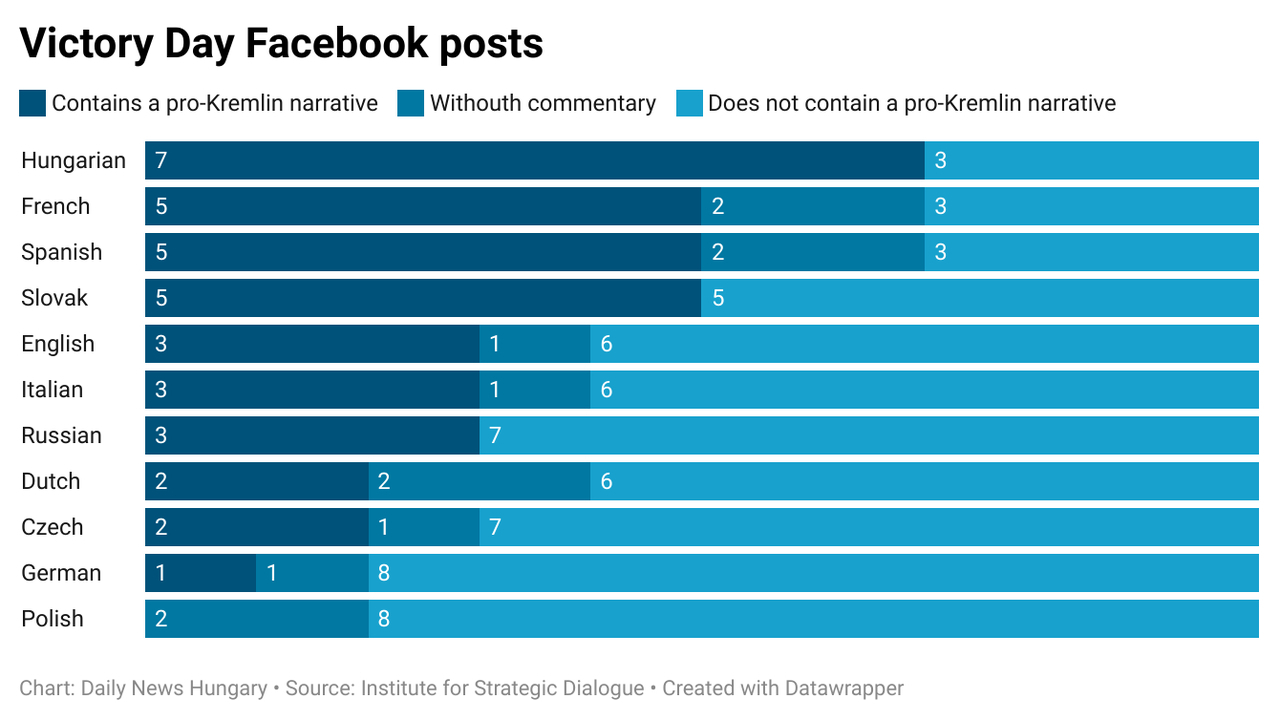Putin’s Victory Day propaganda was most widely shared in Hungarian

Change language:
According to an international comparative study, Russian President Vladimir Putin’s 9 May Victory Day propaganda broadcast was most widely shared in Hungarian. The research looked at Facebook posts written in 11 languages.
Disinformation Situation Centre
Researchers at the Disinformation Situation Centre studied Facebook posts related to Victory Day in 11 languages. In an international comparison, posts in Hungarian were the most pro-Russian. What is more, the most popular post was made by a Hungarian site, Orosz Hírek (Russian News), about Putin’s speech, Lakmusz reports.
What is Victory Day?
As Telex writes, there has never been a unified public memory of the day of victory that marked the end of the Second World War. The German surrender took place not in front of the Soviet command but at the unified headquarters of the Western Allies in Reims on 8 May 1945. However, the Soviet Union was not satisfied with the agreement, and a second document of surrender was signed with the Germans a day later.
Now, after this year’s Victory Day, researchers found that Hungarian social media coverage stood out in the international comparison.







It is well known that Hungarians as a rule think that they are very clever (they are not) but are certainly very gullible. History has shown this time and time again and recent history reinforces that view. They are very good at one thing though – bleating on about victimhood.
Just shows some people are as brainwashed as the Ruskies to believe the tripe the Kremlin spouts, plus Hungarian state media too for that matter.
Anonymous fails to realize that Hungary is not trying to be clever, just to survive the best way they can. Hungary is a country that lacks natural resources and is always at the merci of suppliers. The aim of the Hungarian traders is to get the supplies at the cheapest price, a price that the country and its people can afford. If Russian energy is the cheapest so be it.